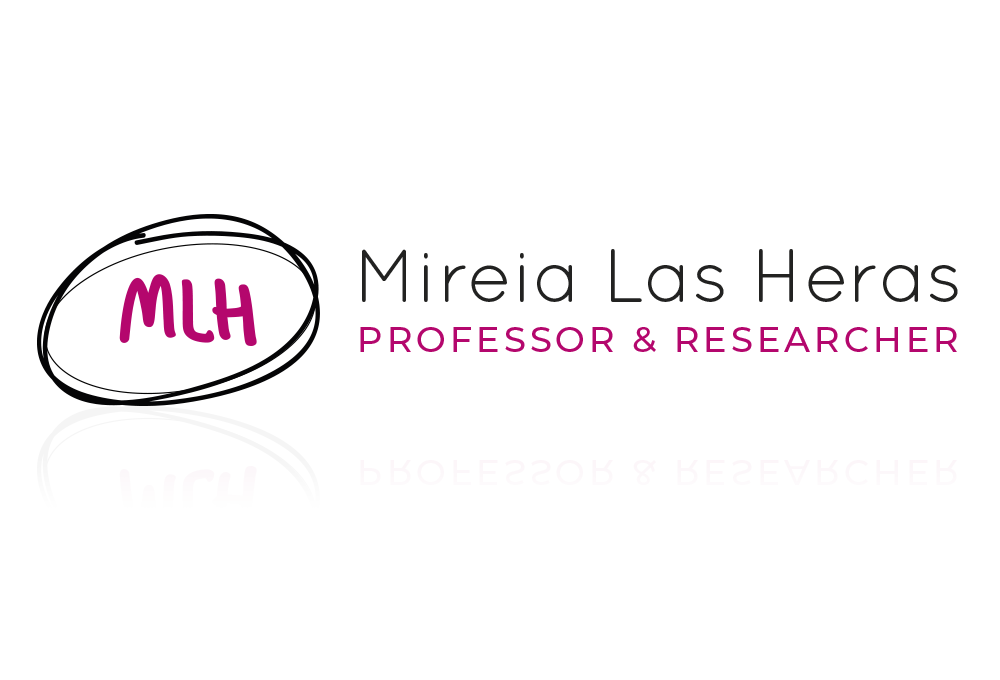Research Books
Going in depth into topics of interest: work-family; careers and leadership.
In line with the aforementioned premises (mentioned in my Research Philosophy section) for the most part, use five theoretical frameworks to build hypothesis and justify my research questions. These being: Work Family Enrichment (WFE); Social Exchange Theory (SET); Conservation of Resources (COR); Perspective Taking (PT); and Social Information Processes (SIP).
Human Flourishing book
A Multidisciplinary Perspective on Neuroscience, Health, Organizations and Arts
Editors: Mireia las Heras Maestro, Yasin Rofcanin, Marc Grau Grau
The study of the good life (or Eudaimonia) has been a central concern for academics and philosophers, as well as for many people, at least since Aristotelian times. This responds to the common experience that we all seek happiness. Today, we are witnessing a new paradoxical boom. The pursuit of happiness seems to permeate everything (i.e., books, media, organizations, talks), without reducing, or in some cases even increasing, the numbers of suicides, depression, and similar pathological consequences of anxiety and stress.
There is not a consensus regarding the meaning of the word happiness. Seligman (2011), one of the fathers of the positive psychology, confirmed that his original view the meaning he referred to was close to that of Aristotle. But he recently confessed that he now detests the word happiness, since it is overused and has become almost meaningless.
In contrast, flourishing could be a (new) term to refer to the good life, or eudaimonia in his full meaning. We, the editors of this book, truly believe that human flourishing is “a combination of feeling good and functioning effectively, and the experience that life is going well” (this definition follows Huppert and So (2013)). All the characterizations of flourishing in this edited book align with such definition. Furthermore, we trust that human flourishing goes beyond states and outcomes, and certainly includes mental and physical health, happiness and life satisfaction, meaning and purpose—including religious values and moral principles—, character and virtue, and close social relationships, especially family and keen.
With all these things in mind, you can read this open-access book “Human Flourishing: A Multidisciplinary perspective on Neuroscience, Health, Organizations and the Arts.” This book comes after an enriching Expert Meeting organized by Prof. Mireia las Heras Maestro, Research Director of the International Center for Work and Family at IESE Business School, together with Prof. Marc Grau-Grau at the Faculty of Education Sciences at the Universitat Internacional de Catalunya and Prof. Yasin Rofcanin, Prof. at Bath Business School. The event was an interdisciplinary meeting of twelve scholars, funded by the Social Trends Institute (STI), in which participants offered their perspectives on human flourishing based on their fields of study and interest.
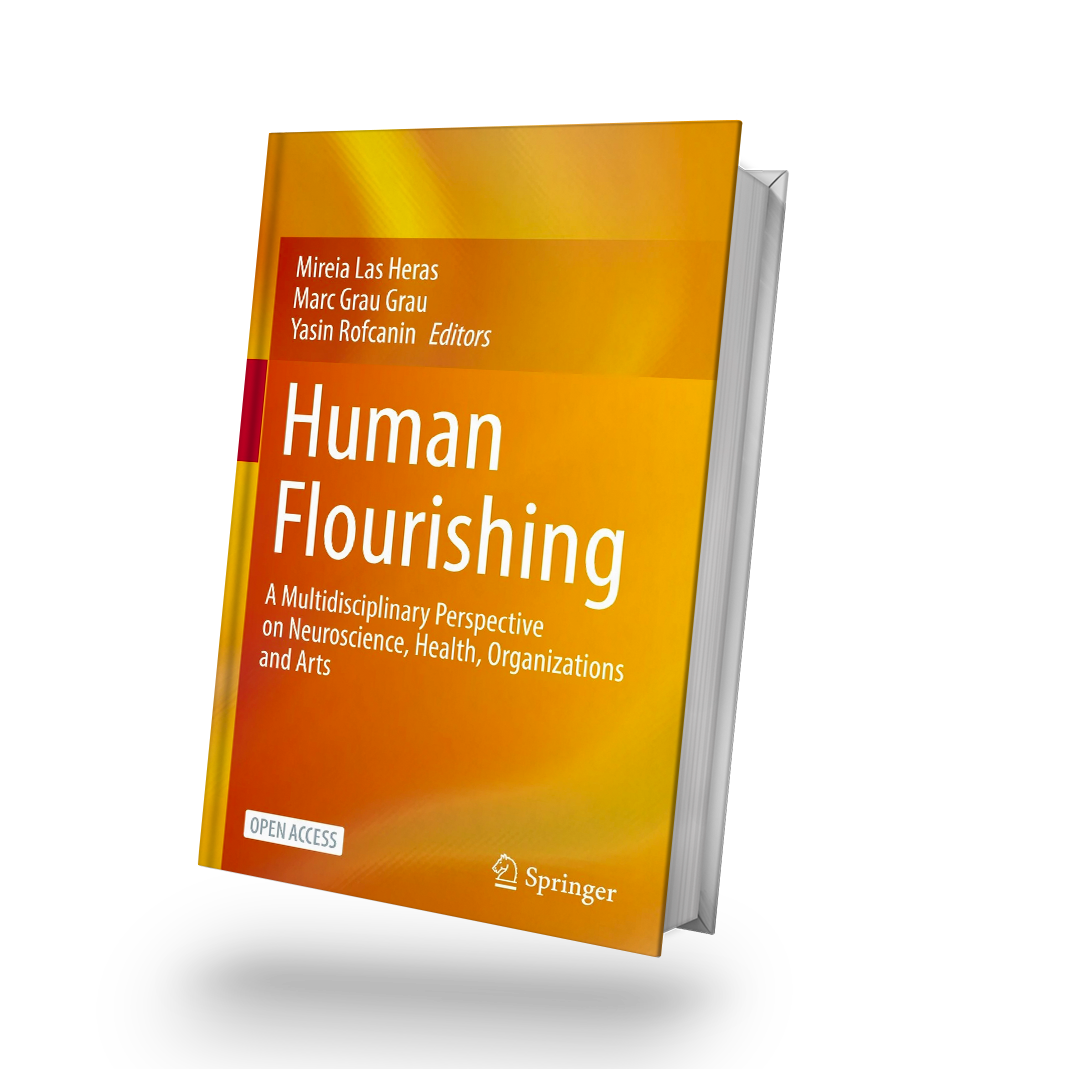
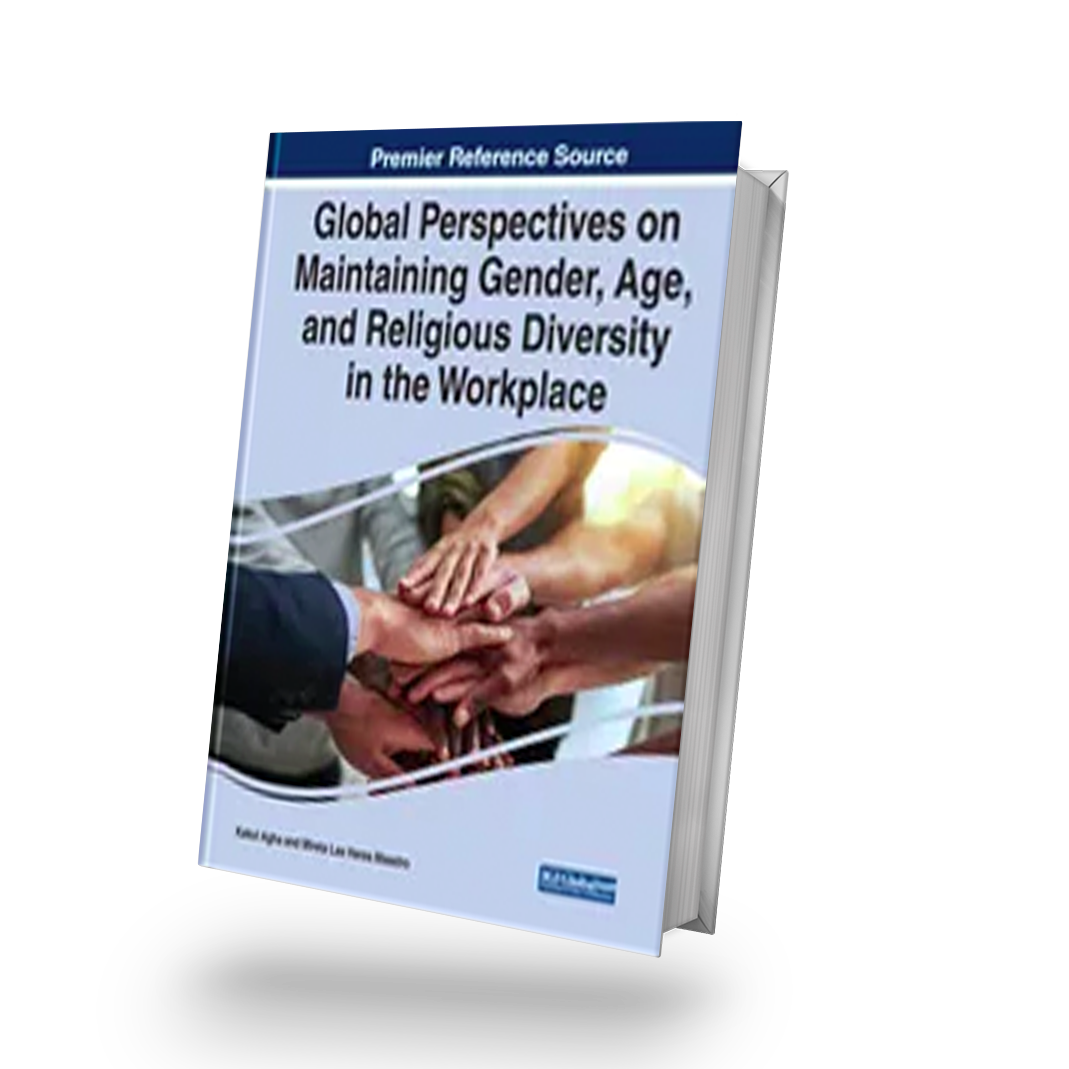
Global Perspectives on Maintaining Gender, Age, and Religious Diversity in the Workplace
Editors: Kakul Agha (Skyline University College, UAE) and Mireia Las Heras Maestro (IESE Business School, Spain)
Diversity is an issue that is pervasive in this globalized world. As most countries are eager to ensure they are as diverse and inclusive as possible, broadening the hemispheres of diversity in the workplace is a crucial step. Consciously or unconsciously, individuals tend to change the way they treat coworkers in the workplace based on gender, age, and religion. In order for businesses across the globe to achieve inclusive workplace cultures, further study is required on the best practices, challenges, and strategies of implementing diversity into policy.
Global Perspectives on Maintaining Gender, Age, and Religious Diversity in the Workplace captures insights into global perspectives on issues, challenges, and solutions for mitigating gender, age, and religious diversity-related matters in the workplace. The book aims to highlight policies and practices prevalent in a variety of sectors in different countries around the globe. Covering topics such as cross-cultural leadership, diversity policy, and wellbeing, this reference work is crucial for business owners, managers, human resources professionals, researchers, scholars, academicians, practitioners, instructors, and students.
The many academic areas covered in this publication include, but are not limited to:
- Cross-Cultural Leadership
- Cross-Cultural Leadership
- Diversity Policy
- Gender
- Generations
- Hybrid Workplace
- Inclusion
- Senior Workers
Engaged Fatherhood for Men, Families and Gender Equality
Healthcare, Social Policy, and Work Perspectives
The aim of this open access book is to launch an international, cross-disciplinary conversation on fatherhood engagement. By integrating perspective from three sectors—Health, Social Policy, and Work in Organizations—the book offers a novel perspective on the benefits of engaged fatherhood for men, for families, and for gender equality. The chapters are crafted to engaged broad audiences, including policy makers and organizational leaders, healthcare practitioners and fellow scholars, as well as families and their loved ones.
This book is open access, which means that you have free and unlimited access. This open access book presents a novel multidisciplinary perspective on the importance of fatherhood for families and gender equality. Focuses on an integrated perspective on social as well as organizational policies for supporting fatherhood. Includes insights into the cultural and practical barriers to elevating fatherhood.
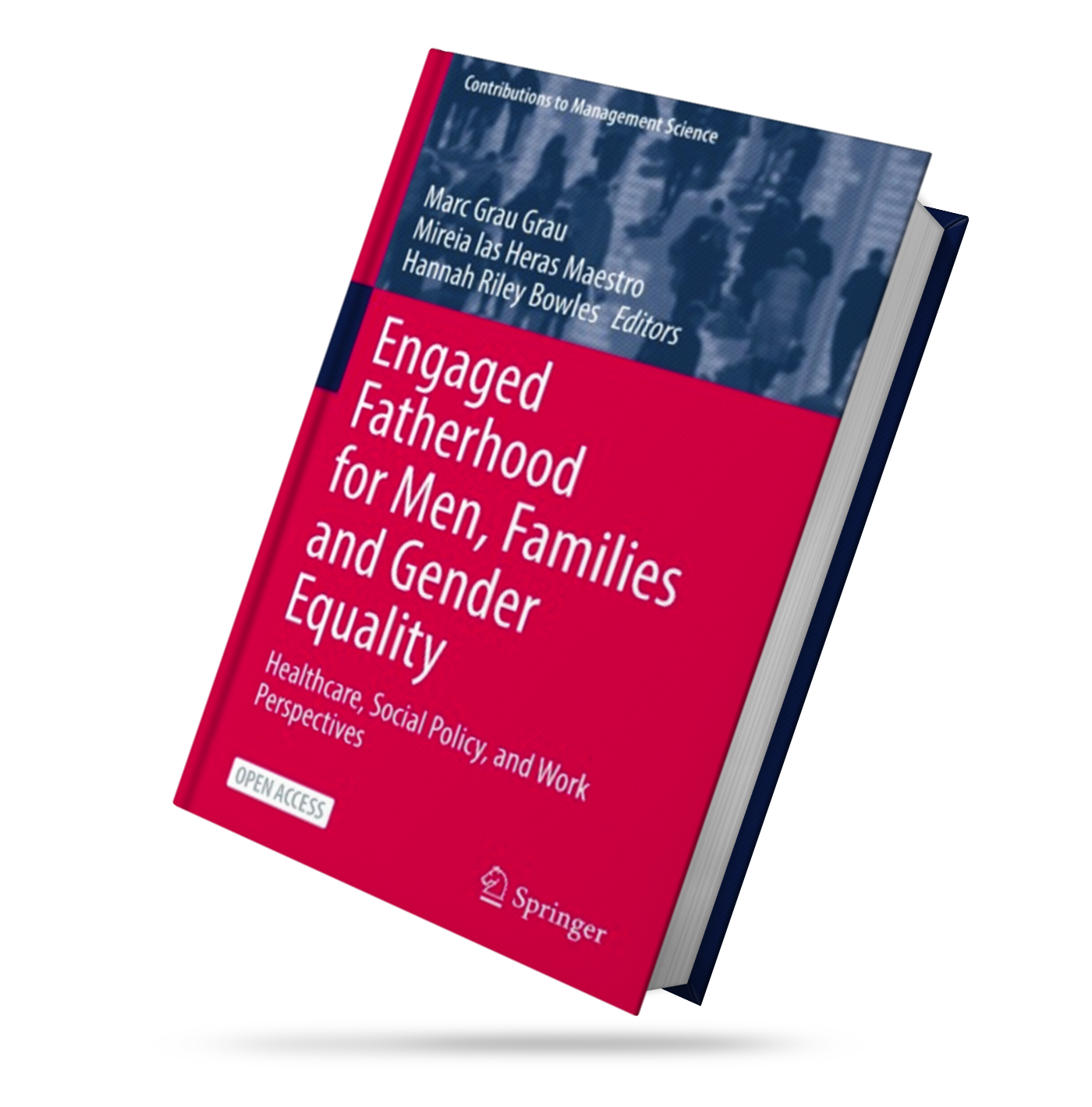
Citation
Grau-Grau, M., Las Heras, M and Riley-Bowles, H. (2021, forthcoming). Engaged Fatherhood for Men, Families and Gender Equality: Healthcare, Social Policy, and Work Perspectives (Eds). Berlin, Germany: Springer (open access).
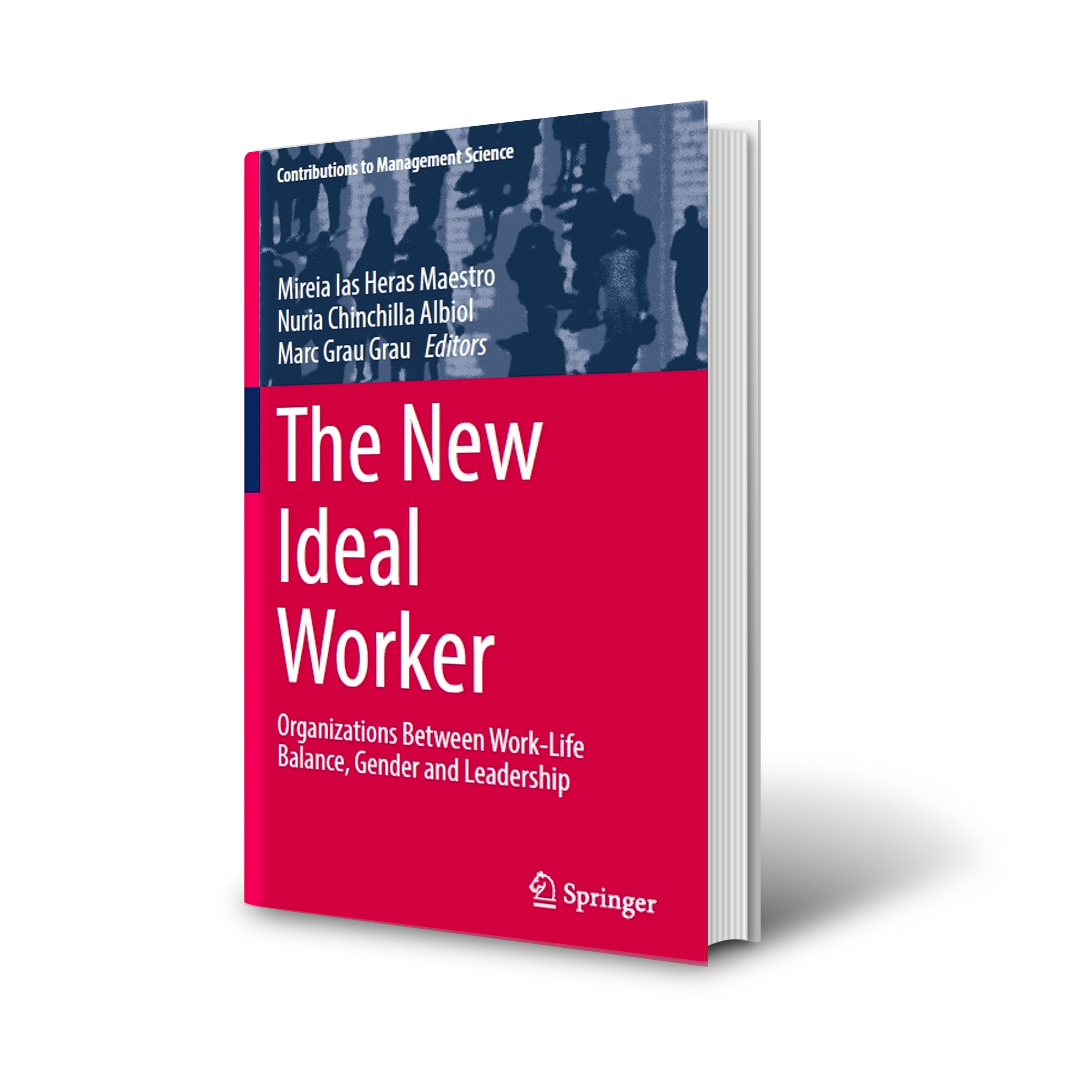
The New Ideal Worker
Organizations Between Work-Life Balance, Gender and Leadership
Editors: Mireia las Heras Maestro, Nuria Chinchilla Albiol, Marc Grau Grau
In the 70s, Coser (1974) defined the Greedy Institutions as those institutions who asked their members for an “exclusive and undivided loyalty”. These institutions assumed that the “ideal worker” was the one who devoted long hours to their jobs with no family interference (Williams 2000). In some sense, this image of “ideal worker” still exists, but empirical evidence seems to suggest that far from being positive for the organizations, having old “ideal workers” may have a negative impact on the twenty-first century organizations (Reid 2015; Rudman and Mescher 2013; Stone and Hernandez 2013; Williams et al. 2013). Moreover, recent technological, social and demographic changes have reshaped the way people work and the way families organize themselves (Jacobs and Gerson 2001; Presser 2003). In a situation like that, where more employees ask for a real work-family balance/integration, it is timely and relevant to examine the “new ideal worker”, and to understand how companies adapt to this new situation. Can we define a (new) ideal worker? If yes, are there cultural differences? Do companies offer new programs and policies for the (new) ideal worker? What role does technology play? The first goal of this edited volume is to answer these intriguing questions regarding the new ideal worker.
Expanding the Boundaries of Work-Family Research. A vision for the future.
Edited by Steven Poelmans; Jeffrey Greenhaus; Mireia Las Heras. Palgrave Macmillan, UK, 2013
With contributions from thirty authors from fifteen countries, this is a 'white book' for international work-family research and practice. The authors offer a bold look at the future and provide guidelines for future research, focusing on applied, international work-family research.
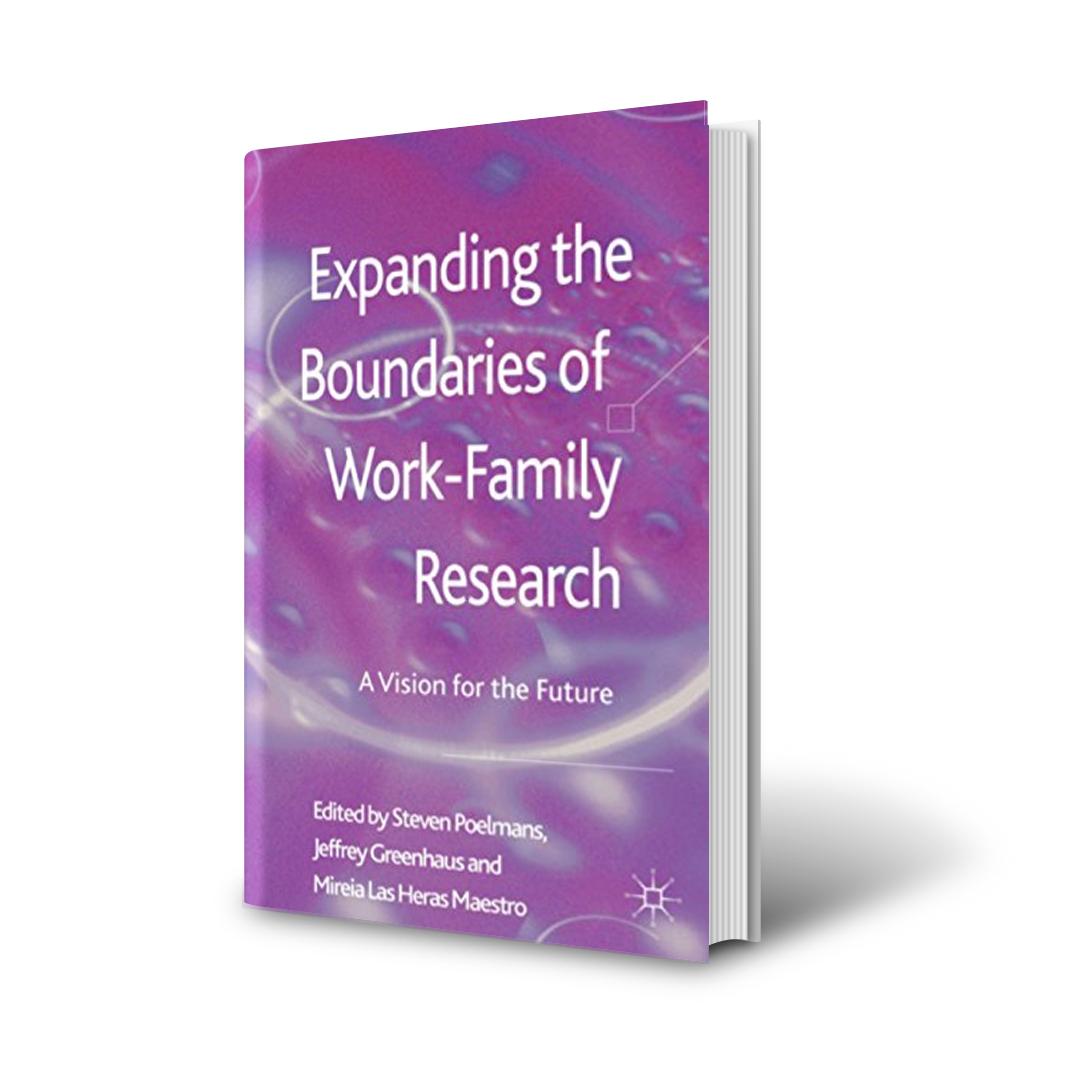
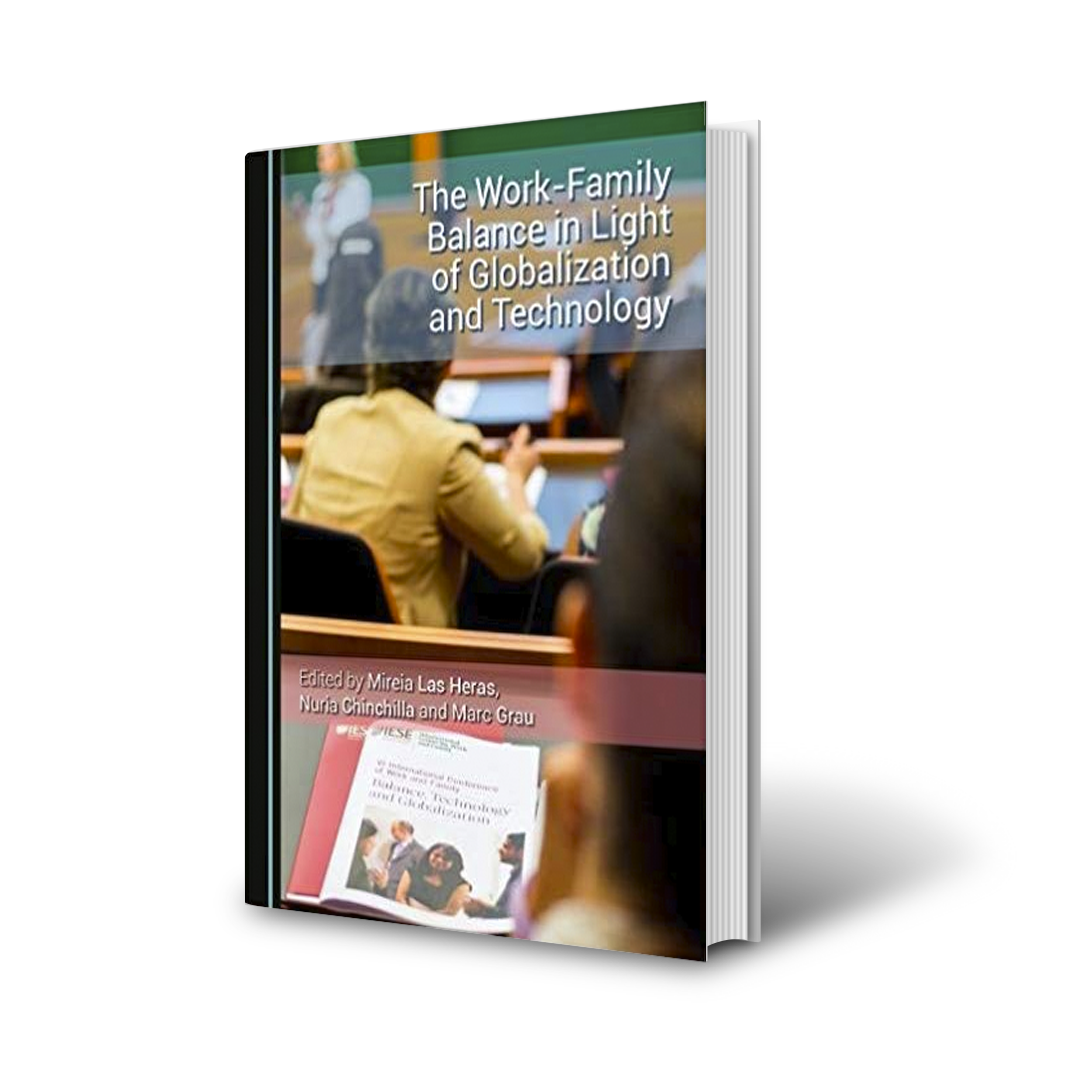
The Work-Family Balance in Light of Globalization and Technology
Edited by Mireia Las Heras, Nuria Chinchilla, and Marc Grau) , UK: Cambridge Scholars Publishing, 2017
Technology is changing the way we balance work and family. In an age in which information technology has brought the promise of autonomy and control by allowing asynchronous communications; in which work systems have enabled people to work from various times and in various locations; in which work and non-work boundaries have as a result been blurred; the work and family interface needs to be reconsidered. In line with this, the main goal of the this book, as well as of the VIth International Conference of Work and Family (July 1-2, 2015), is to understand the impact of technology on work-family dynamics, to address a wide range of current problems related to work-family balance, and contribute solutions to those problems. Among other important topics, the different chapters discuss questions such as how global workers cope with work-family issues, and how information technology impacts on work-family dynamics.
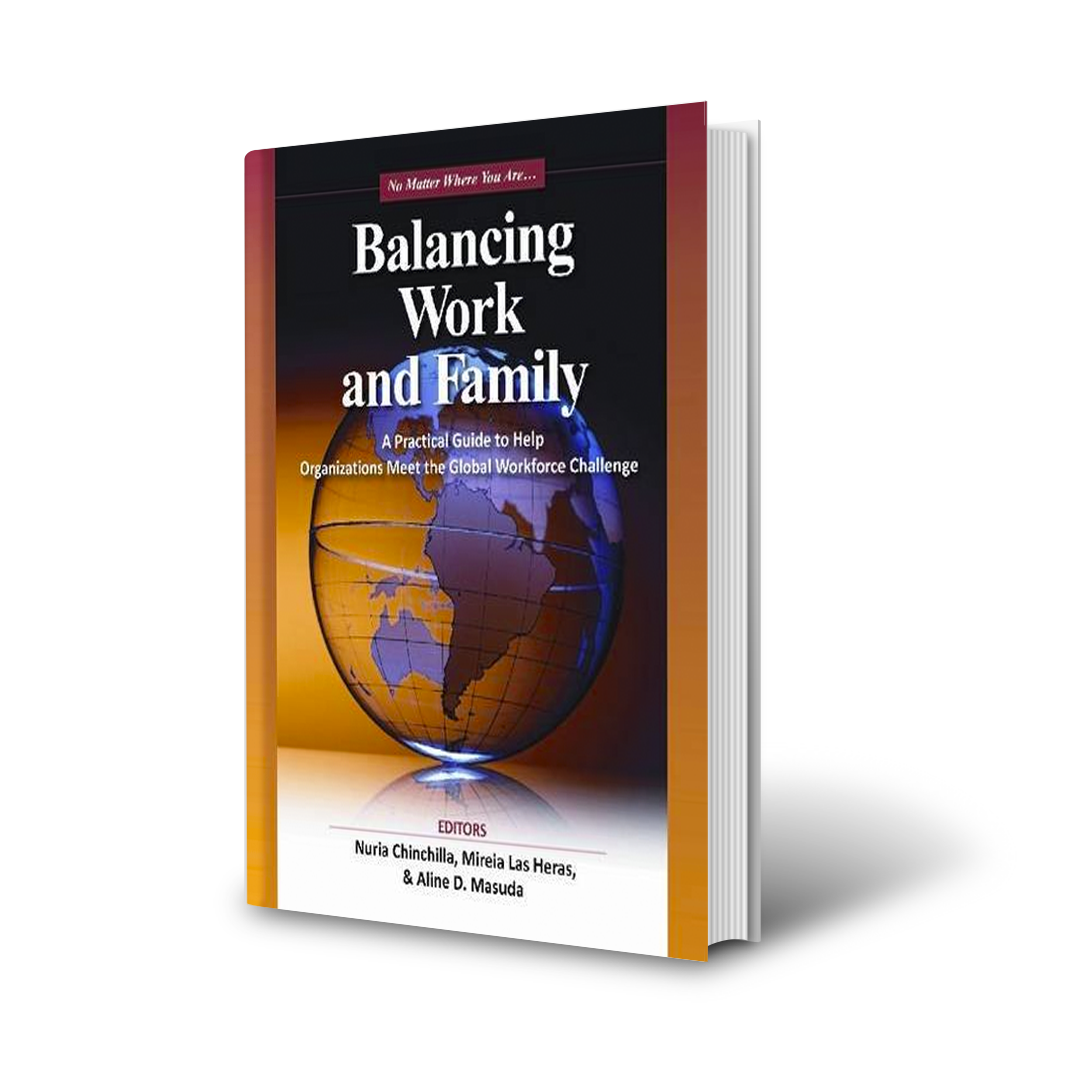
Balancing Work and Family
Practical Guide for Implementing Effective Work Family Policies Across Countries. HRD Press, Inc. Amherst, Massachusetts
Parents around the globe are facing the common challenges of balancing family and work. And the need has never been more urgent for organizations to recognize how having a family impacts an employee's creativity, productivity and performance. Here is a useful guide to help leaders implement country-sensitive work-family policies and create family-responsible environments in which employees can carry out their work and still be fully engaged with their families. In nine chapters, ""Balancing Work and Family"" reviews and addresses the unique cultural, social, political and economic climates in the United States, Latin America, North America, Europe, Asia and Africa. It provides practical recommendations based on solid international research. It presents theory as well as vivid accounts of employee experiences from different geographical regions and cultural backgrounds. It shares examples and business cases illustrating best practices from companies in these regions. The book's perspective is truly global, with chapters written by international authors. It brings together a diverse team including an academic expert who has conducted rigorous studies on work family conflict, a lawyer who addresses the legal environment in some countries and a practitioner with hands-on experience with real employers and employees. Each chapter presents an overview of the factors in a specific region impacting work-family integration, the main challenges to individuals and organizations, solutions companies have implemented and many examples of the processes companies use to foster family-responsible cultures. The authors make a strong case that it is the job organizational leaders - not HR professionals - to direct change in this important area. With this book, you have a roadmap to creating more effective organizations, societies, economies and - most importantly - stronger families.
Citation
Nuria Chinchilla, Mireia Las Heras and Aline D. Masuda “Balancing Work and Family. A Practical Guide for Implementing Effective Work Family Policies Across Countries” HRD Press, Inc. • Amherst • Massachusetts
What Researchers are saying about the book…
Terrific. A fascinating and deeply insightful tour of work life research and promising company practices in many different parts of the world
This ambitious book does a wonderful job at helping practitioners from around the world take an international perspective on the implementation of family responsive employment practices that jointly balance global and local cultural sensitivity. The book is also a valuable addition to academics seeking to understand new research on comparative work-family issues.
Today’s economic downturn makes it even more important for employers to align their talent management strategies with the 21st century global workforce. Managers cannot afford to implement ineffective human resource policies and programs. Investing in workplace flexibility and work-family initiatives can provide organizations with a positive return on their human capital investment. The book, Balancing Work and Family, provides managers with a powerful combination of transformative ideas and practical suggestions for moving their organizations into a work-family culture zone that systematically enriches both the business and social environment at the workplace
Rarely does a book live up to its title the way this volume does. No matter where you are, work and family matter.
Local culture, norms, and practices must be seriously considered in developing and implementing “countrysensitive” family-responsible policies. The editors have done a remarkable job assuring that these points are made dramatically throughout the book by authors who not only represent different disciplines but different regions of the world as well. From Asian Confucian to the United States, seven geographical regions are highlighted in separate chapters that focus on culturally-relevant challenges and solutions and are illustrated with helpful cases and fascinating commentaries from employees and employers.
Written as a pragmatic guide for practitioners, Balancing.
Work and Family can also teach academic researchers more than a few valuable lessons.

